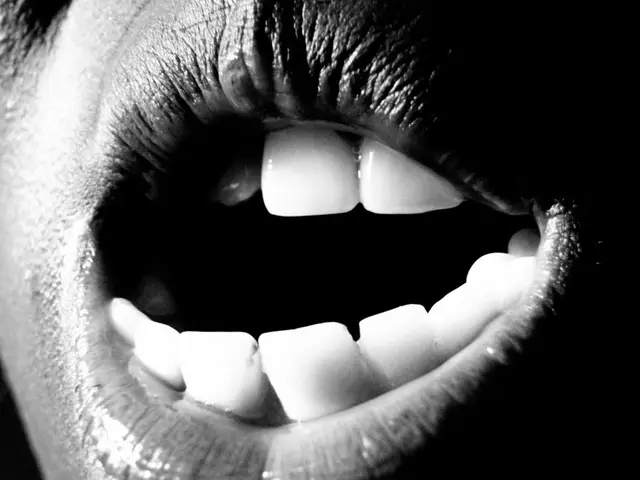Early indications and manifestations of elevated blood pressure include:
Catching Hypertension Before It Catches You
High blood pressure, known as the "silent danger," can be tricky to spot. It's the leading health risk worldwide, and it often goes undetected for years. As Prof. Dr. Markus van der Giet explains, "High blood pressure isn't a problem that gives you immediate warning signs. It can take 20 years or more for damage to become noticeable." That's why keeping a close eye on your blood pressure is essential, as announced by the head of the Hypertension Center at Charité. But how can you tell when it's time to see a doctor?
Recognizing the Silent Enemy
Mild hypertension can be difficult to spot, and many people live with it for years without realizing it. That's because high blood pressure can occur without any severe symptoms. Some people might even feel better due to their activity levels, according to van der Giet.
Without obvious symptoms, high blood pressure can only be detected through measuring it. If your reading is 140/90 or higher, you likely have high blood pressure. The first number represents the systolic pressure, while the second indicates the diastolic.
High Blood Pressure's Conspicuous Warning Signs
Although high blood pressure is hard to detect, there are some signs to watch out for. Potential symptoms of high blood pressure can include headaches when you wake up that lessen when you sit up, nosebleeds, and an uneasy feeling of restlessness. The German Heart Center at Charité additionally lists sleep disturbances, irritability, fatigue, and tinnitus as signs of potential hypertension.
"It can also cause feelings of nausea, discomfort, or weakness under stress, which may present as increased sweating," adds van der Giet. Here's a list of all the known symptoms of high blood pressure:
- Sleep disturbances
- Fatigue
- Weakness under stress
- Dizziness
- Shortness of breath
- Nausea
- Headaches
- Nosebleeds
- Tinnitus
- Irritability
- Restlessness
Symptoms in Men and Women - Any Differences?
There are minor differences in blood pressure between men and women. On average, women have a higher pulse pressure, which is the gap between the lower diastolic and the higher systolic blood pressure. A study by medical journalist Dr. Anja von Au reveals that women in their third decade of life tend to develop high blood pressure more quickly and severely than men.
However, the symptoms of hypertension do not significantly differ between men and women.
Early Detection's Pivotal Role
Early detection of hypertension is vital. Even though some people may live for years or decades without serious consequences, the risk of heart attacks and strokes increases with age. In fact, about half of long-standing hypertension cases eventually lead to death due to these two scenarios.
"High blood pressure often does not receive the attention it deserves," warns van der Giet. "But if hypertension is spotted early, many serious consequences can be prevented through medication and dietary changes. A change in salt and magnesium intake, for example, can significantly impact blood pressure."
- High blood pressure, or hypertension, is a leading global health risk that often goes undetected for years, making it crucial to regularly measure and monitor blood pressure levels.
- Some potential symptoms of high blood pressure may include headaches upon waking, nosebleeds, sleep disturbances, irritability, fatigue, tinnitus, dizziness, shortness of breath, nausea, weakness under stress, and increased sweating.
- Although there are minor differences in blood pressure between men and women, the symptoms of hypertension do not significantly differ between the two genders.
- Women may exhibit a higher pulse pressure (the difference between their systolic and diastolic pressure) and may develop high blood pressure more quickly and severely during their third decade of life.
- Early detection of hypertension is pivotal in preventing serious health complications, such as heart attacks and strokes, which become more likely with age.
- Adopting a health-conscious lifestyle focused on dietary changes, such as reducing sodium and increasing magnesium intake, can significantly impact blood pressure management and help prevent the consequences of hypertension.








